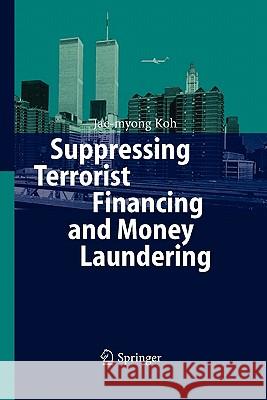Suppressing Terrorist Financing and Money Laundering » książka
Suppressing Terrorist Financing and Money Laundering
ISBN-13: 9783642068928 / Angielski / Miękka / 2010 / 243 str.
When watching the collapse of the Twin Towers on CNN 11 September 2001, the international community was awakened to the urgent needs of open discussion to identify the emerging threat and the way to cope with it. Given the unprecedented heinous nature of the incident, the moves that the international community made were quick and included countermeasures in various dimensions. One of the major countermeasures highlighted as a result was to target the financial infrastructure of terrorist organisations. In this campaign, diverse organisations have participated, including the Security Council, Financial Action Task Force (FATF), IMF, World Bank, etc. At the same time, various methodologies have also been introduced at both the international and national level. Such a consensus and mobilisation of - sources to one end in the international community may be considered phenomenal in the history of public international law, and without doubt merits an in-depth analysis for both academic and practical purposes. In this context, this book examines the evolution and implementation of int- national standards on countering the financing of terrorism. There are two dim- sions to be taken into account to understand the structure of this book. The first is concerned with a sequential perspective. Given that 9/11 has provided a critical momentum in this area, chapter 2 deals with the international position prior to 9/11, whereas chapters 3, 4 and 5 analyse development following 9/11. The s- ond is related to a hard law and soft law perspective.











